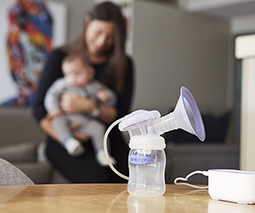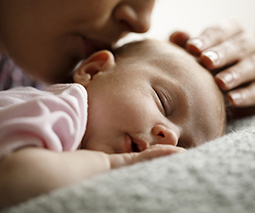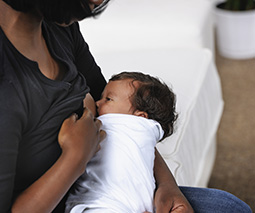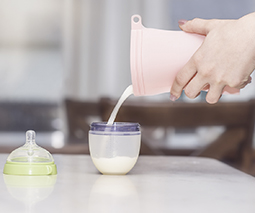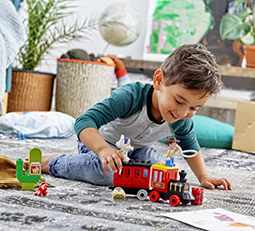Breastfeeding your baby to sleep? Here’s why it’s OK
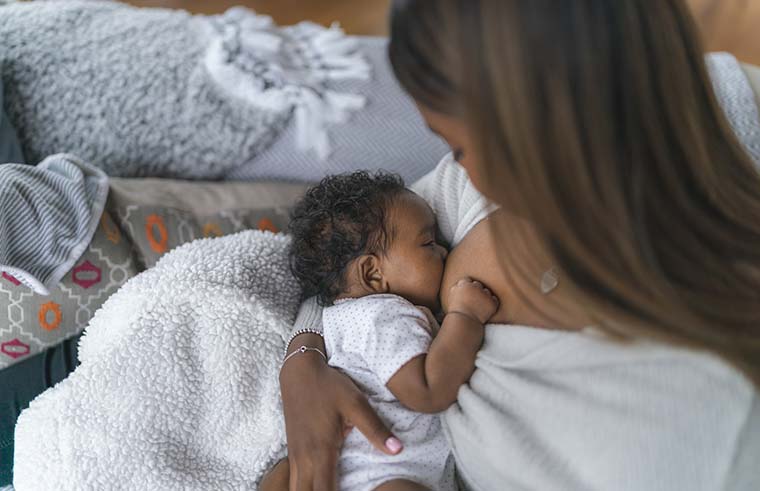
I have a confession to make. I breastfeed my baby to sleep. I know, I know. Sigh. I’m bracing myself for much hand-wringing and a lot of “tut tuts”. Perhaps a warning about the perils of creating a dreaded ‘sleep association’ – that disaster we’re told by all the experts to absolutely avoid, lest we encourage our babies to ‘need’ us to help them fall asleep.
Frankly, I’m calling hogwash on the idea that feeding to sleep will in some way make life harder, not easier.
Here are four reasons I will happily continue to feed my bub to sleep – and why, if you do the same, it doesn’t make you a bad mum.
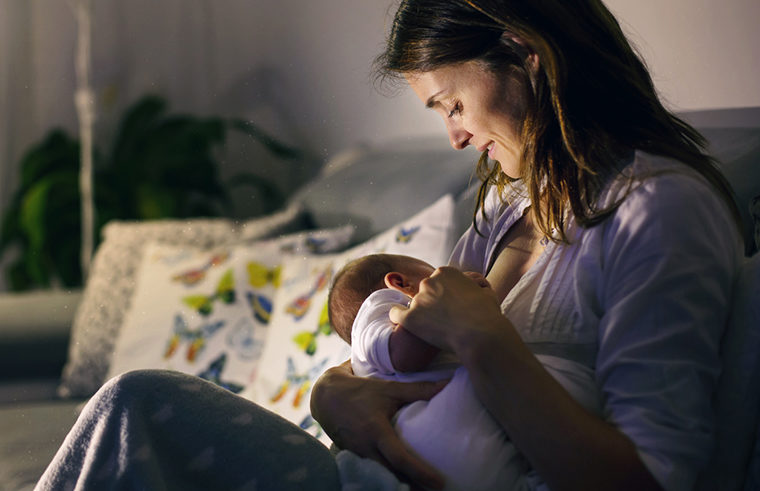
1. It’s the quickest way to get baby to sleep
Through trial and error, it was quickly established in the first few months of caring for my newborn, that the quickest way to get him to sleep each night (and back to sleep after overnight wakings), was to pop him on the breast.
This is no accident. Breastmilk releases all sorts of feel-good hormones, including oxytocin, prolactin and cholecystokinen (CCK), which work together to induce a drowsy state in babies. In addition, the magical sleep-inducing hormone melatonin has been found to peak in mothers’ breastmilk when the sun goes down.
Meg Nagle, an International Board Certified Lactation Consultant and author of Boobin’ All Day … Boobin’ All Night: A Gentle Approach To Sleep For Breastfeeding Families, is a leading advocate for feeding to sleep, and explains why it’s such an effective method.
“There are many benefits to breastfeeding to sleep,” Meg says. “Most breastfed children fall asleep easily and quickly, so bedtime tends to be quite relaxing for both baby and parents.
“It brings comfort, security and predictable routines for the child. It can also be done anywhere at any time to help settle them off to sleep.”
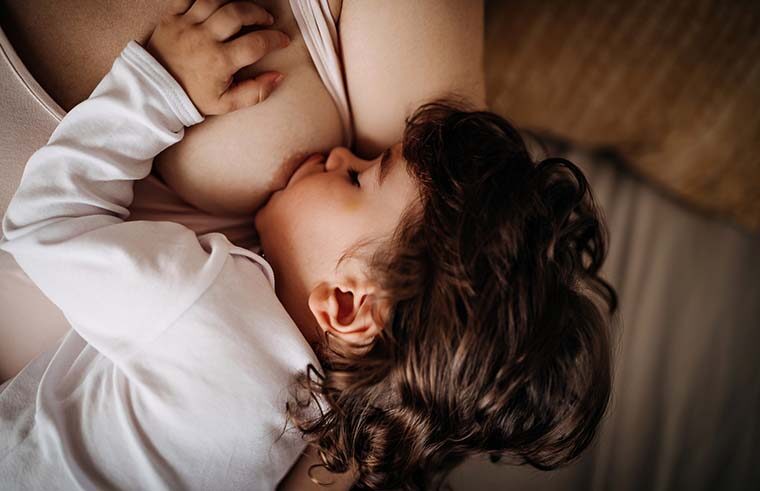
2. It’s a heck of a lot calmer than the alternatives
In the first few months after bringing my son home, I lost count of the number of times I was told to just “pop him down in the cot” so he would learn to self-soothe and go to sleep. Er, right … and then he’ll proceed to scream the house down.
We were extremely lucky in that we dodged the dreaded witching hour. I’ve always been pretty militant about ensuring my son has adequate naps throughout the day, which I think helps prevent him being overtired by bedtime. Generally, he is a pretty chilled out bub.
After each night’s bath, book and bed routine though, if I popped him down in his cot he would simply cry until I picked him up again. Patting/shushing/rocking to sleep could take up to two hours, and it simply became quicker to just feed him to sleep.
“Breastfeeding is so relaxing for your child,” Meg says, “which is why it is the perfect way to get them easily and calmly off to sleep.”
If it ain’t broke, don’t fix it, I say.
3. It’s been the best bonding experience
In the early days of demand feeding, I was told to respond to my son’s cries within 90 seconds. This would promote secure attachment and lead to a calmer, happier baby. I learnt to simply ‘whack him on the boob’ if he cried, and nine times out of 10, this is what he was after.
After months of this, it was hard to execute a complete 180, and instead of soothing my baby each time he was distressed, it was now advised I should try sleep training. This seemed completely counterintuitive to me.
“Breastfeeding to sleep is the biological norm and is what we have been doing for hundreds of years,” Meg explains. “Unfortunately, with the extreme pressure and push within Western societies for babies to sleep, people are left feeling as though their breastfed baby or toddler has something wrong with them if they’re not sleeping through the night.”
“The reality is that most breastfed babies (and toddlers) do continue to wake to breastfeed. This is because breastfeeding is about so much more than just the milk they are getting.”
In the context of a lifetime, the 18 months or so I plan on breastfeeding is such a small window of time, that I’d like to make the most of this incredible bonding experience while it lasts.
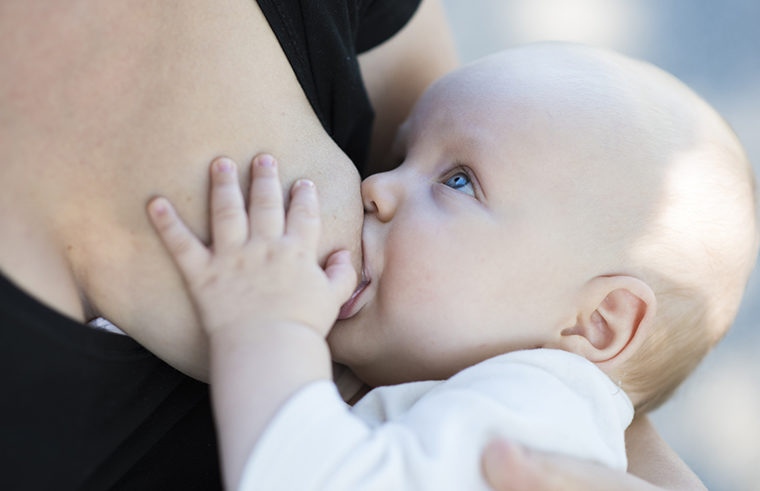
4. Feeding to sleep has no bearing over what the night will bring
I’ve come to learn that infant sleep is completely haphazard. We’ve had periods where my son has slept up to 11 hours at a time, and others where we’ve been up every hour, on the hour.
We’ve established a good routine but even when the days run like clockwork – he’s had long, restful naps, he’s had adequate milk and solids feeds – the nights can be unexpectedly dreadful.
Hitting developmental milestones, sleep regressions, teething and upset tummies can wreak havoc with even the best sleepers, and if giving my baby a feed at midnight and then at 3am, comfort or otherwise, allows us both to get back to sleep quickly, I’m going to do it.
Meg’s experience and research backs this up, “If you breastfeed your baby to sleep then they will probably ask to be breastfed at least one to two times overnight,” she says.
“This is not a sleep problem. This is the biological norm. Instead of asking women, ‘Is your baby good? Are they sleeping well?’ What we should be asking is, ‘Is your baby breastfeeding well overnight?’”
Whenever I have doubted myself, I have remembered International Board Certified Lactation Consultant and author Pinky McKay’s take on breastfeeding to sleep: “It is the most natural thing in the world for a relaxed baby and mother to snuggle and doze together as they breastfeed,” Pinky points out.
Every mother has to decide what works best for her, her baby and her circumstances. If that means breastfeeding your baby to sleep, then so be it!
 Need some more feeding advice? Parent School’s International Board-Certified Lactation Consultants can help. Click to find out more or book a one-on-one session.
Need some more feeding advice? Parent School’s International Board-Certified Lactation Consultants can help. Click to find out more or book a one-on-one session.


